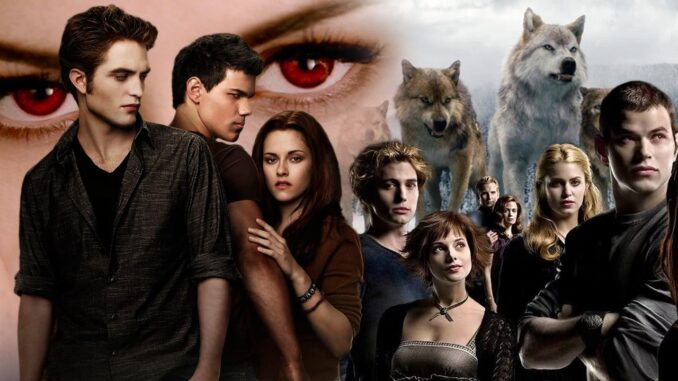
The digital world, much like the human heart, holds an enduring capacity for both fervent hope and dramatic collapse. Few narratives illustrate this better than the saga of Kristen Stewart, Robert Pattinson, and the unyielding gravitational pull of the Twilight universe. For years, their on-screen romance as Bella Swan and Edward Cullen bled into real life, igniting a fan frenzy so intense it felt less like admiration and more like shared destiny. Then, the inevitable crash: the public breakup, the separate trajectories, the slow, painful dissolution of the "Robsten" dream. Fans, like spurned lovers, slowly, reluctantly, picked up the pieces.
Until the day the internet collectively combusted.
The first tremor was subtle, a whisper on a lesser-known celebrity gossip forum, a grainy screenshot of a supposedly “candid” interaction. Then, a reputable entertainment news site dropped the bomb: a joint statement, brief and bewilderingly understated, confirming that Kristen Stewart and Robert Pattinson had been seen together, not for a film project, but "reconnecting." The phrase hung in the digital air, pregnant with impossible implications.
Across the globe, a collective gasp rippled through the fabric of reality. For the millennial cohort, now juggling mortgages and toddlers, the news hit like a forgotten punchline to a decade-old inside joke. A twenty-something marketing executive, mid-PowerPoint presentation, felt her phone buzz relentlessly, then vibrate with an insistent tremor. Her fingers, usually precise, fumbled to unlock it. The headline, stark and unyielding, bloomed on her screen: Robsten Reunion? Fans Go Wild Over Shocking Update. Her perfectly coiffed eyebrow shot up, a silent, "You have got to be kidding me." The PowerPoint vanished from her mind, replaced by images of sparkly vampires and angsty teenage girls.
On Twitter, a digital earthquake erupted. The hashtag #RobstenReturns shot to the top trending spot within minutes, a chaotic symphony of caps lock, crying emojis, and vintage GIF collages. There were the triumphant, the vindicated, the ones who had never truly given up hope. "I KNEW IT! I KNEW IT ALL ALONG!" shrieked one tweet, accompanied by a GIF of Aro Volturi clapping maniacally. These were the die-hards, the perpetual optimists who had weathered years of separate career paths, red carpet appearances with other partners, and explicit statements of "moving on." For them, this was not just news; it was a cosmic alignment, a confirmation of their unwavering faith in a fairytale ending. They dug up old fan art, resurrected fan fiction archives, and unleashed a torrent of "told you so" memes aimed squarely at the doubters.
Then there were the cautious optimists, the ones who had been burned before. Their tweets were a mixture of ecstatic exclamation marks and hesitant question marks. "Is this real life? Or is it a collective fever dream?" one fan posted, followed by a hundred crying-laughing emojis. They watched the trending topics with bated breath, half-expecting the rug to be pulled out from under them, for the "reunion" to be debunked as a poorly Photoshopped image or a prank by a rogue publicist. Their joy was tinged with a delicious, almost masochistic fear of heartbreak.
And amidst the celebration, a more cynical, yet equally vocal, segment emerged. "Let them live!" pleaded one Twitter user, clearly exasperated. "They've moved on, we've moved on! This is just sad nostalgia bait!" These were the realists, perhaps even the former fans who had grown weary of the invasive public eye on the actors' personal lives. They argued for privacy, for respecting the individuals behind the characters, and for acknowledging that people change, grow, and move beyond the shadows of their past roles. Their pleas, however, were largely drowned out by the cacophony of euphoria.
The reaction wasn't just digital; it spilled into real life. Coffee shop conversations halted mid-sentence. Work breaks became impromptu fan-theory sessions. Late-night group chats buzzed with a fervor not seen since the original Twilight premiere. It was a shared cultural moment, a collective glance back at a simpler time, a period of unadulterated teen angst and escapism. For many, the "Robsten" romance wasn't just about two celebrities; it was intertwined with their own coming-of-age, their first crushes, their understanding of dramatic, sweeping love.
The shocking update, whether true or a clever fabrication, served as a potent mirror. It reflected the enduring power of pop culture to imprint itself on the personal narratives of millions. It highlighted the intoxicating allure of wish fulfillment, the human desire for storybook endings, even for strangers. And it showcased the wild, untamed ecosystem of modern fandom – a force capable of generating tidal waves of emotion, fueling endless debates, and, for a fleeting moment, bringing a generation back to the dazzling, dangerous, and utterly unforgettable world of Forks, Washington. The sun might not have exploded, but for Twilight fans, the internet certainly did.
